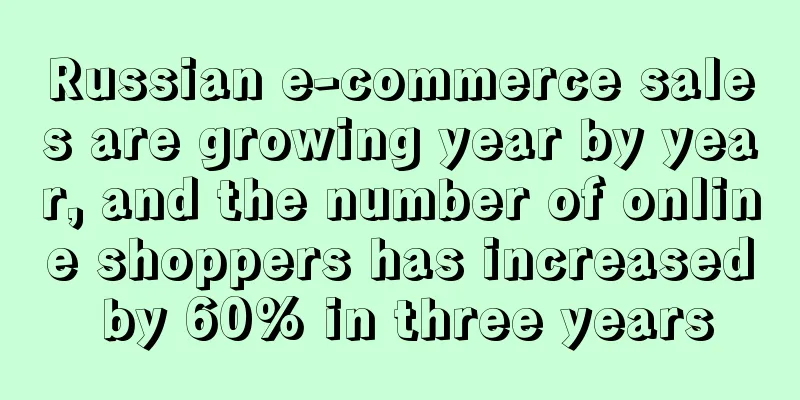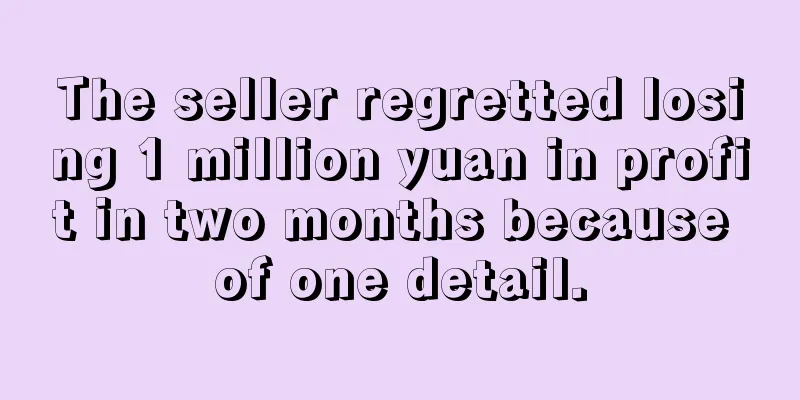Russian e-commerce sales are growing year by year, and the number of online shoppers has increased by 60% in three years

|
Despite the economic turmoil caused by war and sanctions , Russia 's e-commerce sales continue to grow year by year, and the number of online shoppers has increased by 60% in three years .
According to a survey by research firm Data Insight , Russia's domestic e-commerce market grew by more than 50% in 2021 , reaching 4.1 trillion rubles (about 55 billion U.S. dollars). Online sales account for 12% of Russia's total retail market . In the first half of 2022, Russian e-commerce sales increased 1.5 times year-on-year to 2.2 trillion rubles (36.4 billion U.S. dollars). The total amount of online commerce reached 2.3 trillion rubles (38.1 billion U.S. dollars), an increase of 43% year-on-year . The domestic market accounted for 2.2 trillion rubles, an increase of 50% over the same period last year .
According to the research agency YuKassa , the number of online shoppers in Russia has increased by 61% and the number of e-commerce orders has increased by 59% since 2020. According to the survey, 43% of women spend up to 5,000 rubles on shopping in one shopping trip , and 24% up to 10,000 rubles. About 51% of Russian women update their wardrobe when they have money. About 7% buy new things once a month, 3% of respondents can shop weekly, and 2% update their wardrobe every two weeks. In the popular purchase categories, the number of buyers of travel agency services, game goods, and streaming services has increased by 39 times, 26 times, and 11 times, respectively. In this light, Russian e-commerce sales are growing year by year, mainly due to the increase in the number of orders and new customers.
It is understood that due to sanctions, hundreds of international brands have withdrawn from Russia, including well-known brands such as Zara, Oysho, Bershka, Pull and Bear , etc. H&M and IKEA have also sold their last batch of stocks in Russia and suspended sales in Russia. IKEA now only sells online. Russian offline shopping malls have been affected , so people are gradually turning to e-commerce websites to buy foreign brands that are difficult to find .At the same time, local Russian websites such as Wildberries and Ozon have been establishing parallel imports, sourcing goods from non-participating countries such as Turkey, and providing consumers with alternatives to brands such as IKEA . Driven by large e-commerce platforms such as Wildberries and Ozon , the number of online orders and the number of online shoppers in Russia have continued to increase, thereby increasing Russian e-commerce sales and prompting the rapid growth of the Russian e-commerce market .
Russia Online shopping addict E-commerce sales |
<<: It received financing less than a year after its establishment. This track is crazy!
>>: Another big sale successfully passed the review!
Recommend
What is Taiyuan Borian Trading Co., Ltd.? Taiyuan Borian Trading Co., Ltd. Review, Features
Taiyuan Borian Trading Co., Ltd. is a new type of...
Cross-border full-link experience upgrade, Cainiao announced the Double 11 merchant support plan
In order to ensure that cross-border merchants ca...
A market worth hundreds of billions! “High-quality men’s” must-have items are popular both at home and abroad
The progress of the times has promoted the improv...
62% of American consumers are pessimistic about Black Friday and Cyber Monday
For cross-border sellers, the highlight of the ye...
Amazon eyes Indian market, expands e-payments and financial services
Recently, according to foreign media reports, Ama...
What is amaZervice? amaZervice Review, Features
<span data-docs-delta="[[20,{"gallery"...
What is Sock 101? Sock 101 Review, Features
Sock 101 is a sock brand dedicated to providing f...
Wayfair suffers four consecutive quarters of losses! Both active users and order volume decline
Recently, Wayfair, an American home furnishing e-...
What is Duoyoumi? Duoyoumi Review, Features
Duoyoumi, whose full name is Shenzhen Duoyoumi Net...
What is ThaiMCN? ThaiMCN Review, Features
ThaiMCN's overseas new media marketing connect...
What is RxBar? RxBar Review, Features
RxBar is an American energy bar brand that excels...
Amazon may introduce a third-party product rating system
Recently, some netizens posted that they saw Good...
Imports in February hit a record high! Chinese products are widely loved in Japan
Japan's imports from around the world surged ...
US fiscal deficit soars to $660 billion in March, aid may affect economy
It is reported that in the six months since Octob...
Cainiao's Israel distribution center and overseas warehouse officially opened, and the world's top ten distribution centers help Chinese products go overseas
Recently , Cainiao officially opened its distribu...









